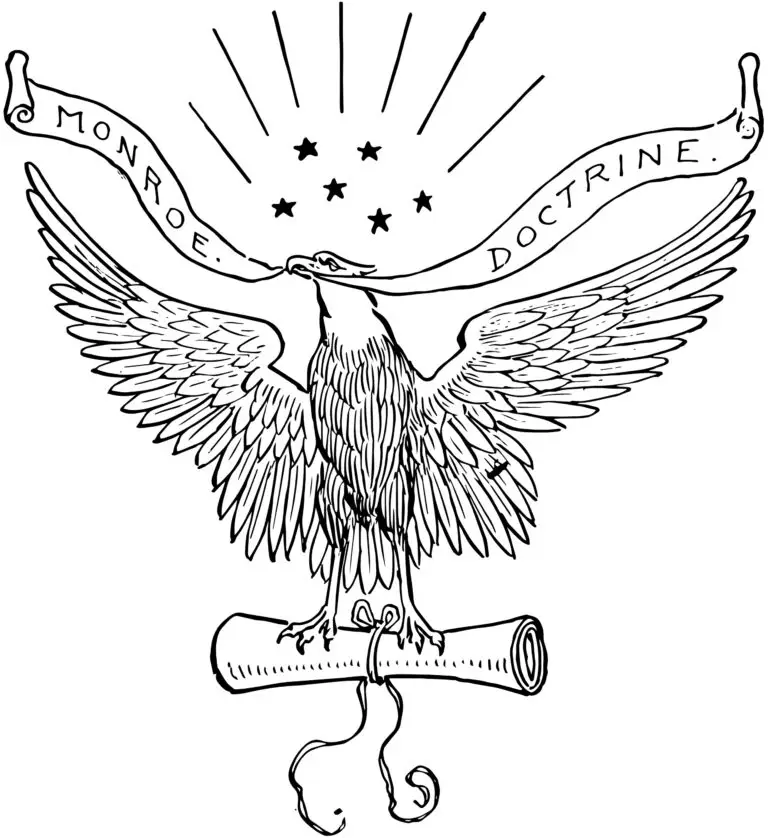Monroe Doctrine

Table of Contents
What is the Monroe Doctrine?
The Monroe Doctrine is a foundational principle of U.S. foreign policy articulated by President James Monroe in his annual message to Congress on December 2, 1823.
The doctrine proclaimed the United States’ opposition to European interference in the affairs of the newly independent nations of Latin America and asserted the American continent as off-limits for further colonization by European powers.
History of the Monroe Doctrine
The Monroe Doctrine was a U.S. foreign policy statement introduced by President James Monroe in his annual message to Congress on December 2, 1823.
The primary purpose of the Monroe Doctrine was to discourage European powers from further colonization or intervention in the Americas.
The Monroe Doctrine stated that any attempt by European nations to establish new colonies in the Americas or interfere with existing ones would be viewed by the United States as a threat to its national security.
The doctrine was largely influenced by U.S. concerns over potential European involvement in the newly independent Latin American nations.
The Monroe Doctrine asserted that the Western Hemisphere was no longer open for colonization and that the United States would consider any attempt to colonize or interfere in the region as a hostile act.
The doctrine emphasized that the United States would refrain from involvement in European affairs and would likewise expect European powers to stay out of American affairs.
The Monroe Doctrine was initially met with limited enthusiasm and had little immediate impact, as the United States lacked the military strength to enforce it at the time.
The British, however, supported the Monroe Doctrine and worked in tandem with the United States to resist European interference in the Americas.
The Monroe Doctrine became more influential in U.S. foreign policy over time, particularly in the late 19th and early 20th centuries, and was invoked by subsequent presidents to justify U.S. intervention in Latin America.
While the Monroe Doctrine is considered a cornerstone of U.S. foreign policy, it has also faced criticism for its unilateral approach and has evolved in interpretation over the years to address changing geopolitical circumstances.
Related Links
Louisiana Purchase
Plessy v. Ferguson
Prohibition
Trail of Tears